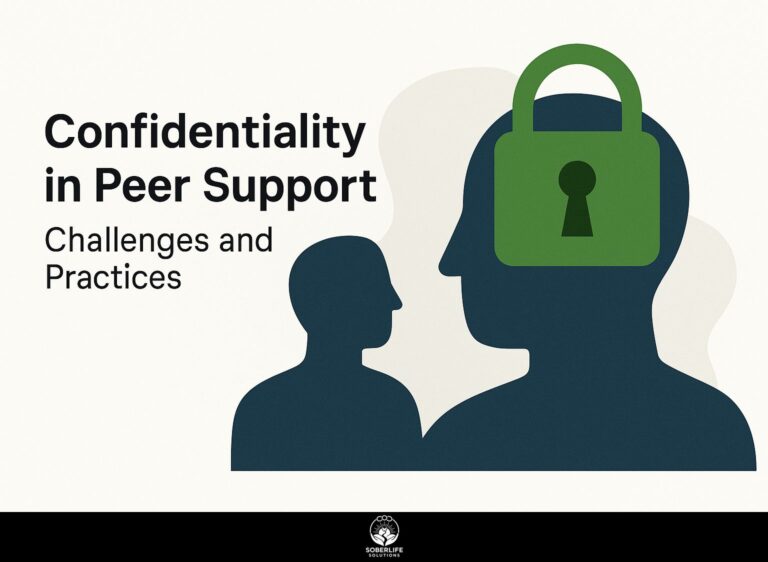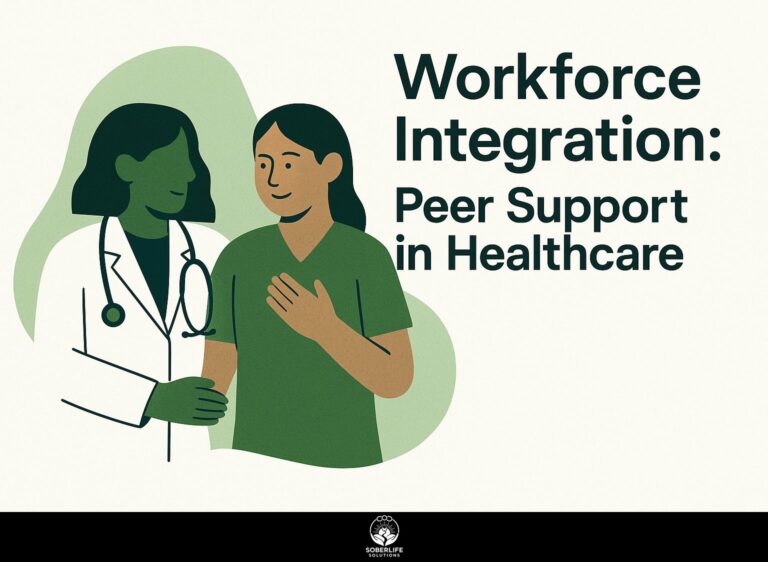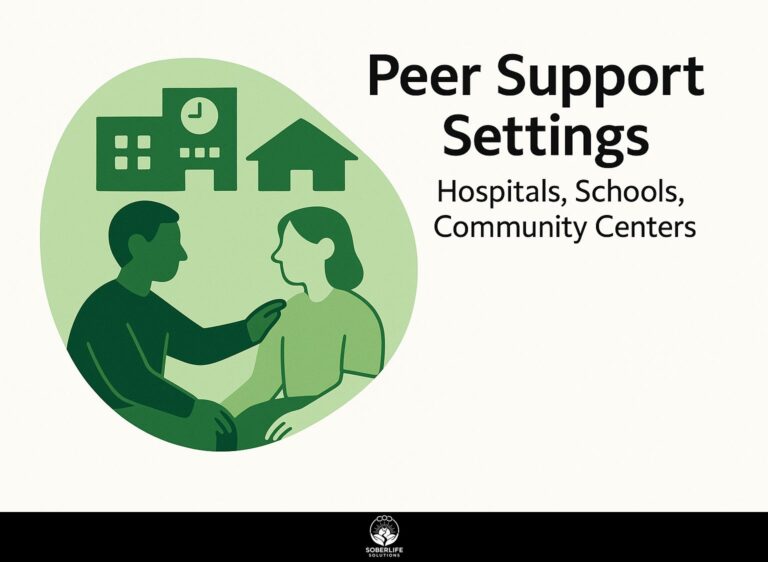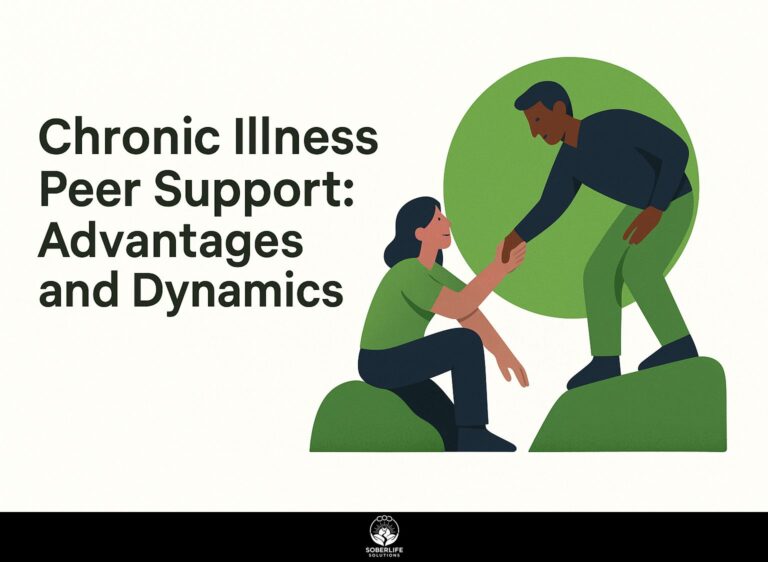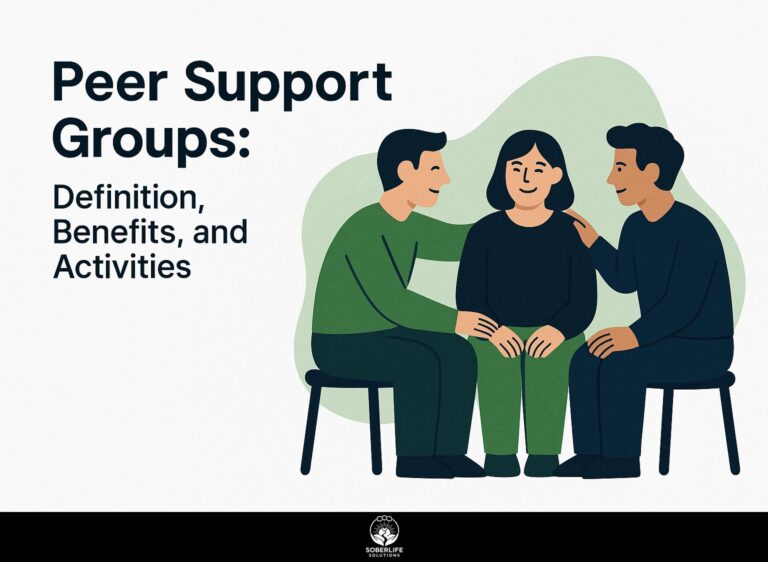Peer Support Groups for Young Adults: Tailored Support
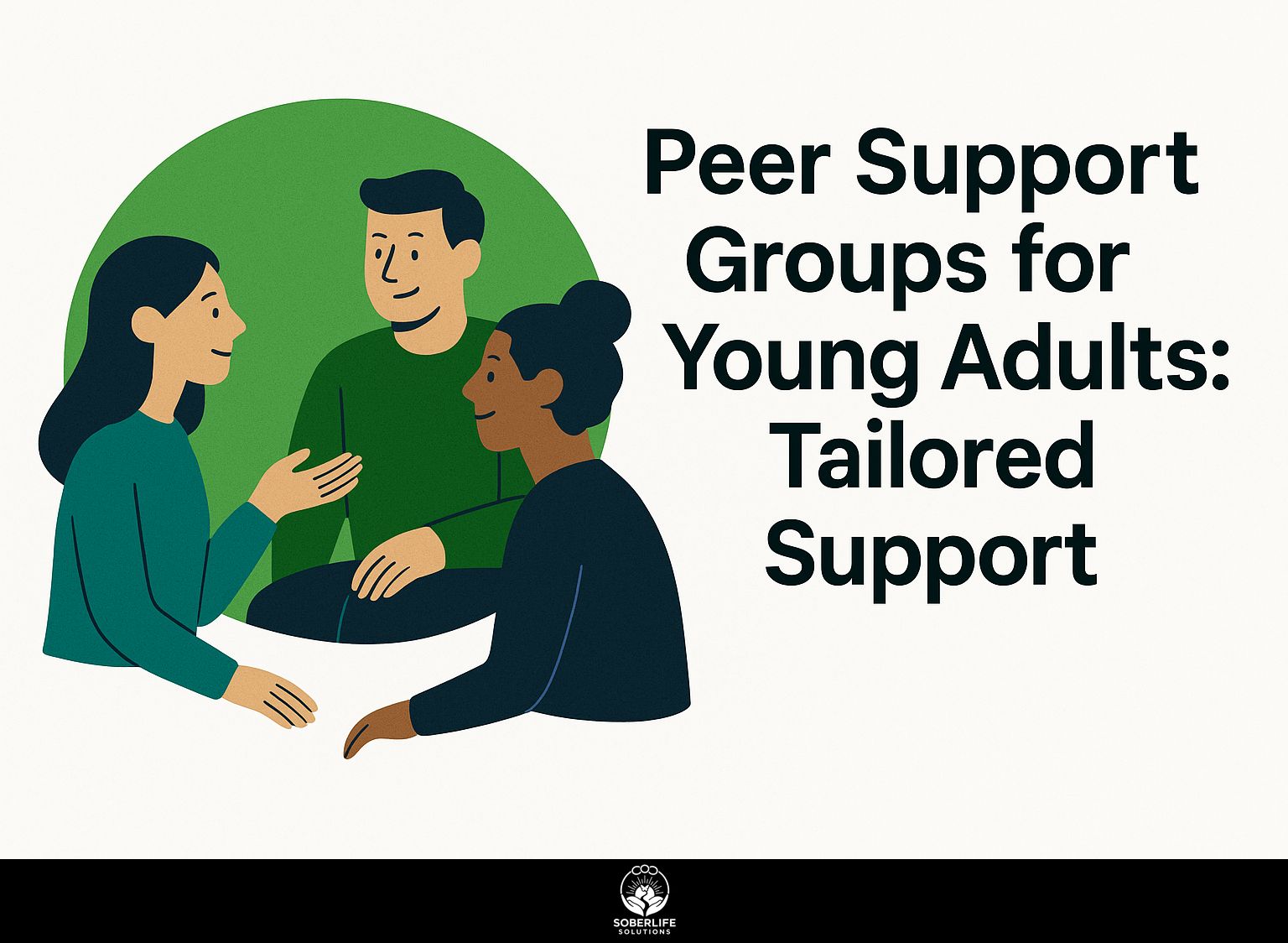
Looking for mental health support? Peer support groups for young adults provide personalized solutions that build community and connection. Organizations like Advocates in Massachusetts are using virtual peer support platforms, such as Zoom, to hold interesting discussions. This article looks at why these groups matter, the advantages they offer, and ways to join. Learn how talking with others who have similar experiences can greatly improve your mental health and help you find helpful community resources.
Key Takeaways:
Definition and Purpose
Peer support is when people who have dealt with mental health issues come together to help and support each other.
This environment offers a secure place to discuss personal stories, methods, and ways to handle challenges.
Weekly support groups give people a chance to talk about their problems freely, which helps them feel like they are part of a community and that others get what they are going through.
Peer support specialists are important because they lead these meetings, share advice from their own experiences, and encourage recovery ideas such as personal growth and optimism. The Substance Abuse and Mental Health Services Administration (SAMHSA) has outlined essential core competencies for peer support workers, emphasizing the importance of these roles in behavioral health.
Structured group activities can encourage everyone to join in and exchange helpful information.
Importance for Young Adults
Young adults face particular challenges; 70% report feeling isolated, so support from friends is important for building emotional connections and lowering stigma.
Programs such as Empower Idaho give young adults chances to discuss what they have gone through and exchange helpful information. By providing support groups led by peers, they promote open conversations about mental health, which has been shown to strengthen community connections.
For example, participants reported a 50% increase in feelings of belonging after attending just a few sessions. These programs help lessen the negative views on mental health. They make discussions about it more frequent, encouraging people to get help and support one another. For context, a comprehensive report by the U.S. Department of Health and Human Services explores the broader challenges faced by young adults in maintaining mental health.
Building connections is important, as it helps young adults become more resilient and improves their overall well-being.
Types of Peer Support Groups
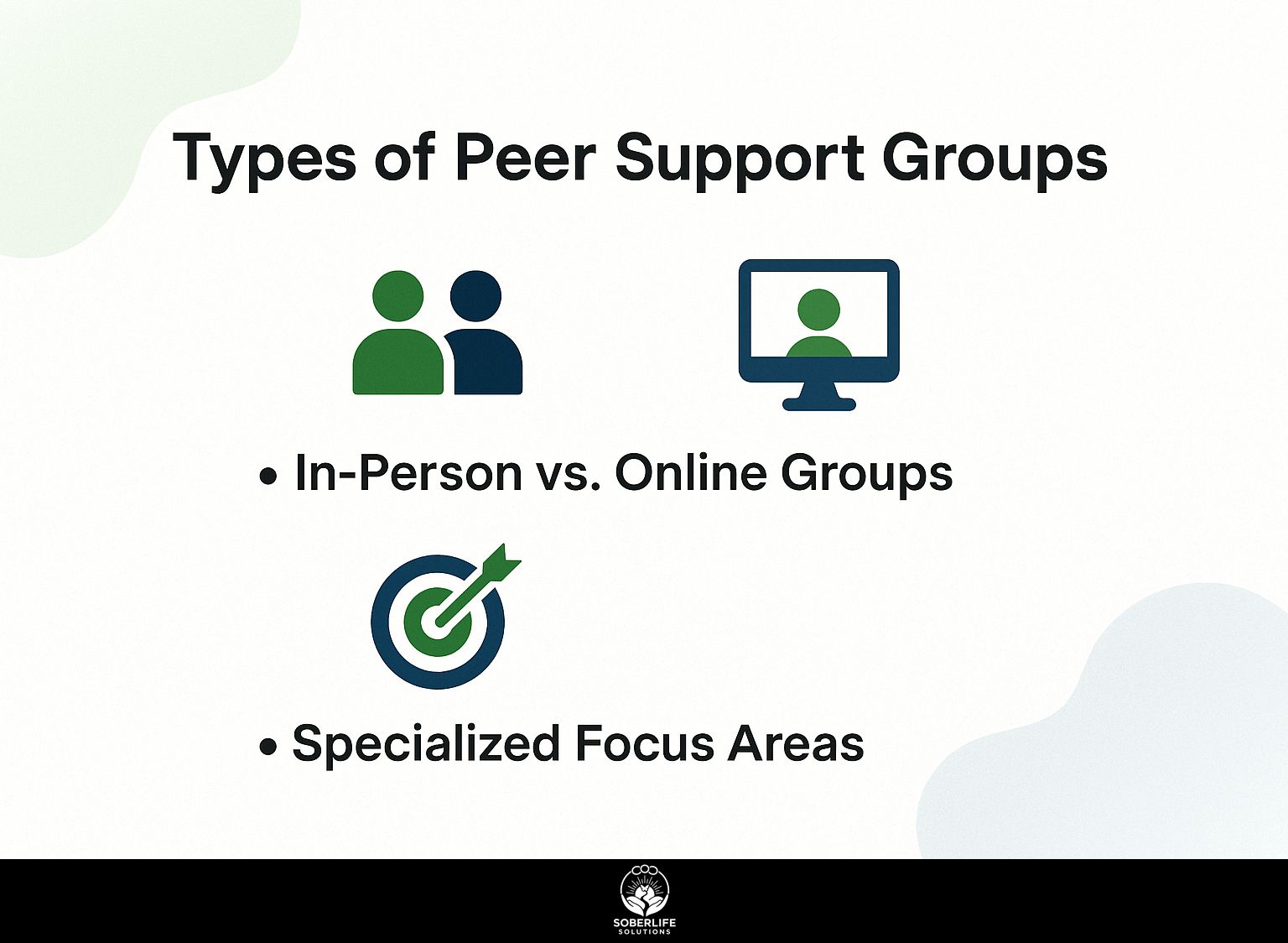
Peer support groups can be divided into face-to-face and internet-based types, each providing different advantages depending on what participants need. For those interested in virtual options, it’s valuable to explore how to find and access online A.A. meetings globally.
In-Person vs. Online Groups
Meeting in person helps people connect right away, while online meetings, usually done through platforms like Zoom, make it easy for people to join from anywhere.
Being around people in person helps you notice body language and feelings, improving communication and creating a strong support network. This is clear because 63% of participants said they felt more connected.
Conversely, online support groups attract a diverse audience, with 75% appreciating the anonymity and flexibility they offer. For example, effective online sessions often include:
- Scheduled discussions
- Breakout rooms for intimate sharing
- Follow-up resources via Slack or dedicated forums
Both formats have their unique advantages, catering to different participant needs and enhancing overall engagement. Research findings published in Nature indicate that preference for in-person psychotherapy versus digital formats can vary significantly among different demographics, underscoring the importance of diverse support options.
Specialized Focus Areas
Peer support groups often focus on specific topics, like family help or care for trauma, providing customized help for particular difficulties.
For example, Mental Health America provides many resources, like the ‘Warmline’ for emotional help and local groups that address different needs.
The National Alliance on Mental Illness (NAMI) provides helplines and specialized support groups for families dealing with mental health issues.
Organizations like Al-Anon focus on the families of individuals struggling with substance abuse, ensuring that their unique experiences are understood and validated.
Using these specific resources can greatly help build community and support recovery based on personal experiences.
Benefits of Peer Support
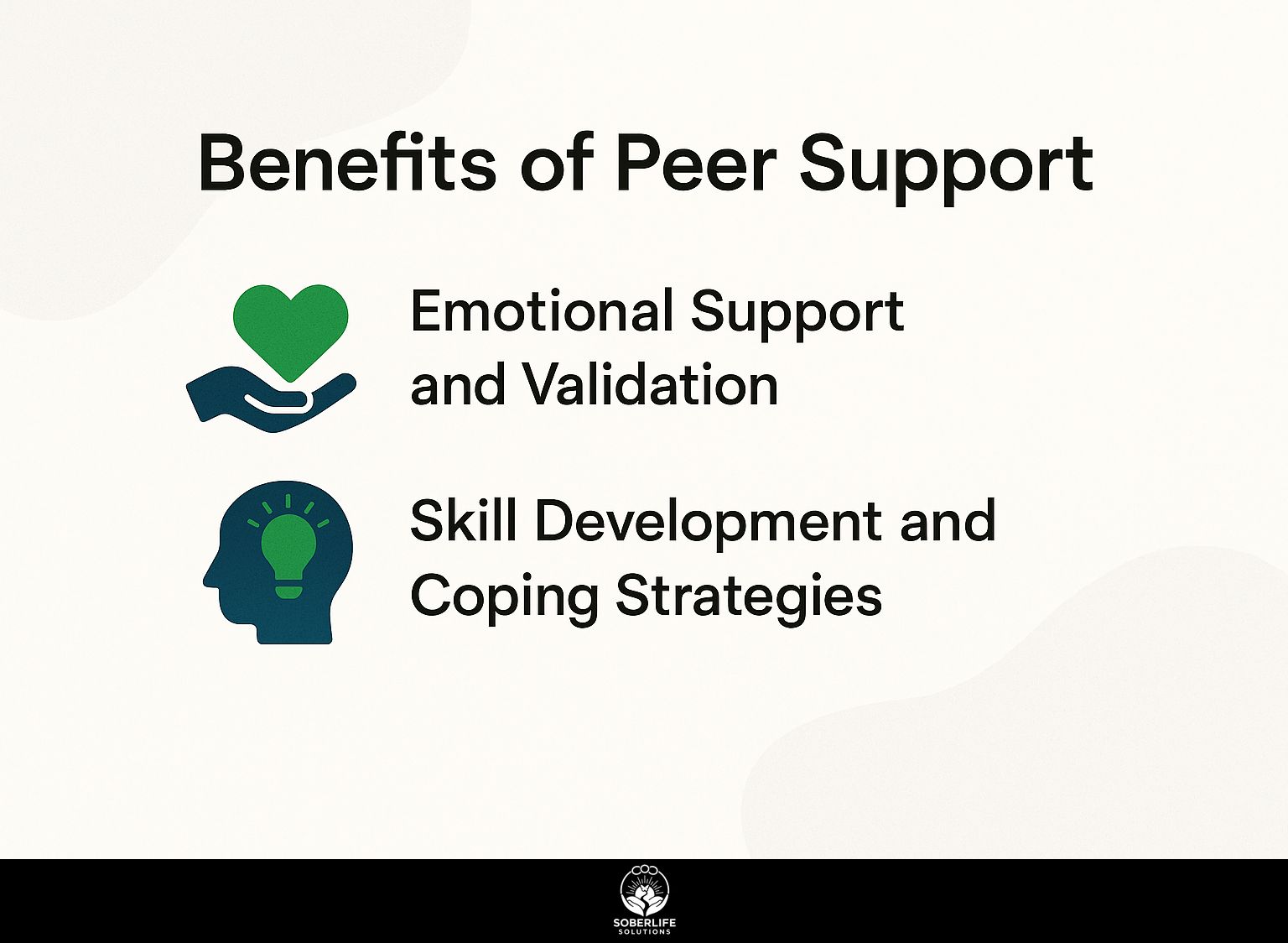
Peer support provides important advantages, like helping with feelings and improving abilities, which are important for personal growth and recovery. To explore in-depth how these groups foster such benefits, consider the insights offered in our article on Peer Support Groups: Definition, Benefits, and Activities.
Emotional Support and Validation
People in peer support groups often say they feel 60% better emotionally because they get validation and support from others.
For instance, Jane, a regular attendee at her local group, shared that expressing her feelings among those who truly understand alleviated her anxiety significantly.
These settings encourage honest communication, letting people share ways to handle challenges and personal experiences that connect with others on a deep level. Activities like group work or organized talks strengthen this bond, helping people feel they belong.
Many groups use platforms like Zoom or Facebook to provide ongoing support outside of meetings. This lively exchange helps people regain their self-assurance and strengthens mental toughness.
Skill Development and Coping Strategies
Peer support groups help people improve their skills, learn ways to deal with challenges, and build strength in handling emotions.
These groups often focus on skills such as mindfulness and conflict resolution. For example, programs like ‘Mental Health First Aid’ or ‘The Wellness Recovery Action Plan’ use organized activities that help develop these skills.
Participants might engage in guided mindfulness exercises to reduce stress or role-play scenarios to practice conflict resolution techniques. You can improve these skills outside of group settings by using meditation apps or conflict resolution methods.
By using these methods often, people can handle life’s problems more effectively and feel better emotionally.
How to Start a Peer Support Group
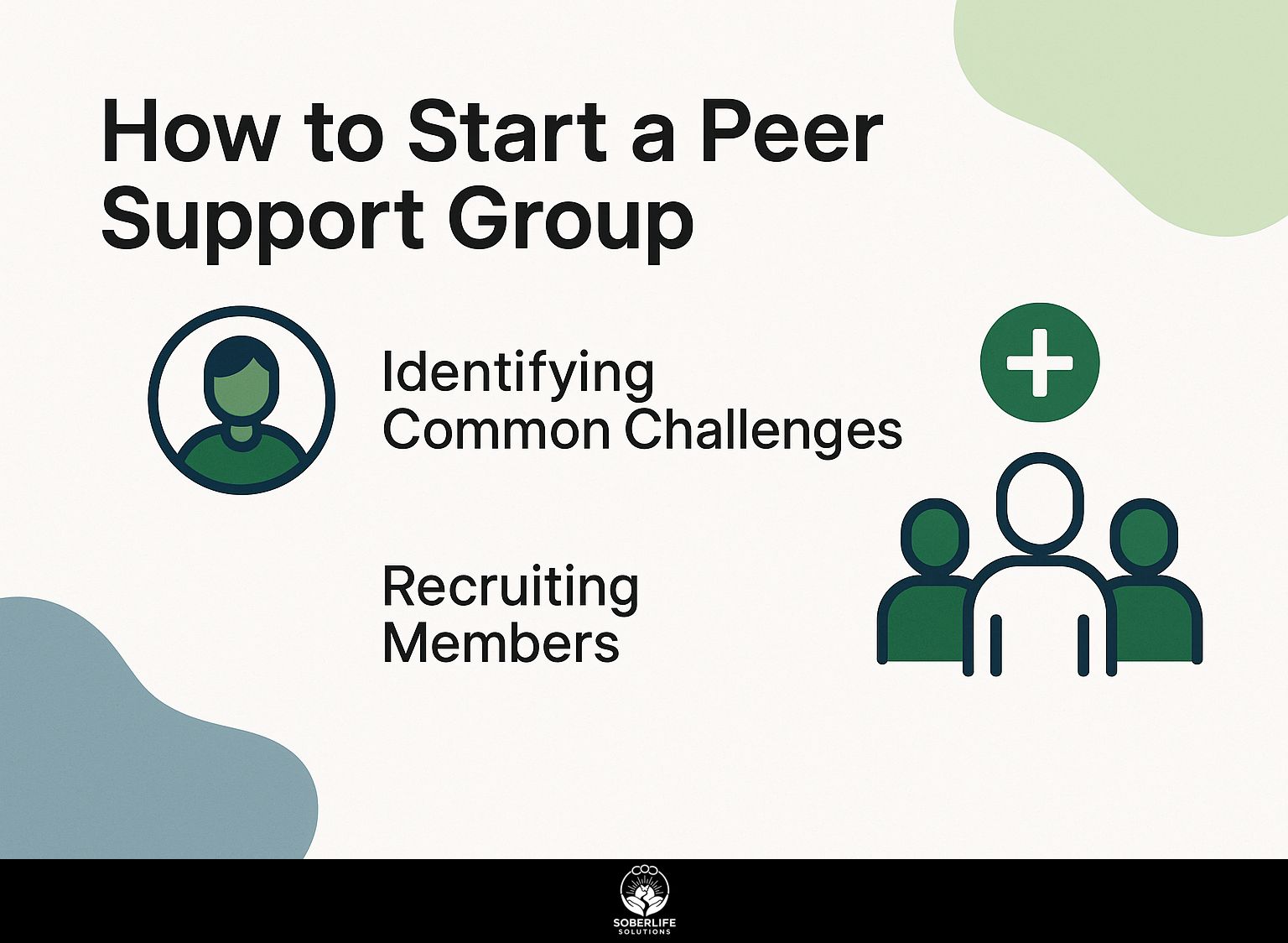
To start a peer support group, find shared problems and recruit members to build a supportive community. It can also be beneficial to understand how structured meetings and their benefits can aid in establishing such a group. An exploration of resources like Secular Organizations for Sobriety offers insights into effective meeting practices and the advantages they provide.
Identifying Common Challenges
It’s important to know about common problems like stigma and low participation when starting a new peer support group.
To combat stigma, consider open community workshops that normalize discussions around mental health; invite local speakers who can share their stories.
To address attendance problems, use social media channels like Facebook or Instagram to set up events and connect with people. Establish clear goals and routines-like weekly meetings with specific topics-to encourage consistent participation.
The `Man Up’ peer support group, for instance, tackled stigma by hosting panel discussions that attracted diverse audiences, leading to a 40% increase in consistent attendance over six months.
Recruiting Members
Effective member recruitment can increase participation by over 40% when utilizing social networks and community outreach strategies.
To successfully recruit members for your peer support group, start by creating engaging social media posts that highlight the group’s purpose and the benefits of joining. Platforms like Facebook and Instagram can help reach a wider audience.
Use community bulletin boards-both physical and online-to find local events. When messaging potential members, emphasize confidentiality and the support-driven nature of the group.
For example, sharing a personal story in your outreach, such as how the group has helped others, can build trust and encourage people to join.
Facilitating Effective Meetings
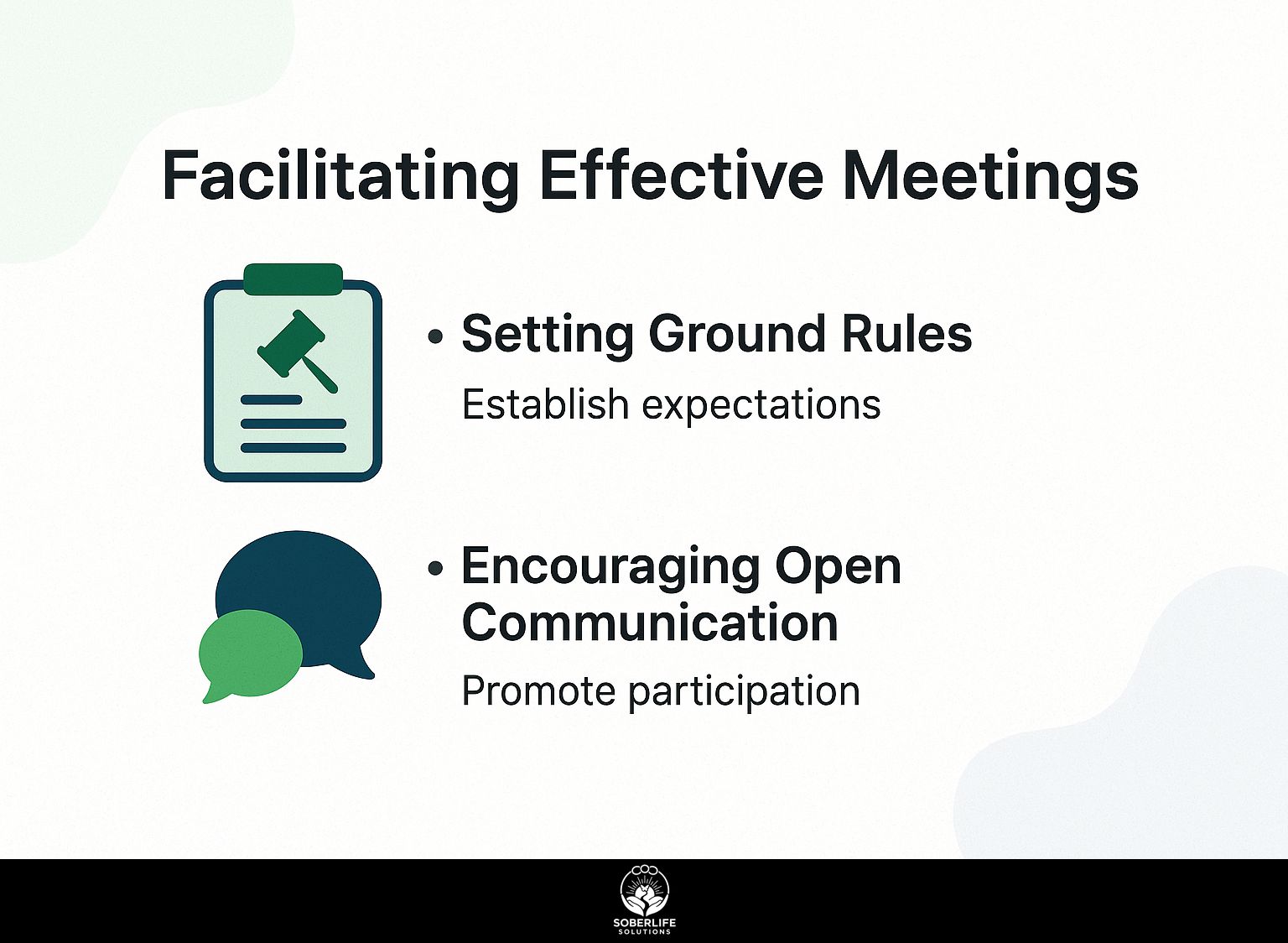
Running successful meetings involves setting clear guidelines and creating a setting that supports open discussion among those attending.
Setting Ground Rules
Establishing ground rules, such as confidentiality and respect, is essential for creating a safe space for peer support participants.
These rules build trust and promote open conversation. For example, a rule of active listening asks people to pay full attention to the speaker without interrupting. This improves comprehension and empathy.
Establishing a ‘no judgment’ policy allows members to share personal experiences without fear of criticism. Regularly reviewing these guidelines helps keep the group on track and addresses any concerns.
When everyone feels valued, they are more likely to participate fully, resulting in a productive and supportive experience with their peers.
Encouraging Open Communication
Promoting open communication can increase involvement and trust in peer support groups, resulting in stronger emotional bonds.
To encourage this kind of communication, try using active listening methods. This means paying close attention to the speaker, summarizing what they say, and asking questions to make sure you understand.
Having designated times during meetings for everyone to express their ideas ensures that everyone gets a chance to speak.
Successful peer support groups often find value in small group discussions to ease sharing. For instance, a group may allocate the last 20 minutes of each meeting for members to discuss personal challenges, promoting vulnerability and connection.
Measuring Success and Impact
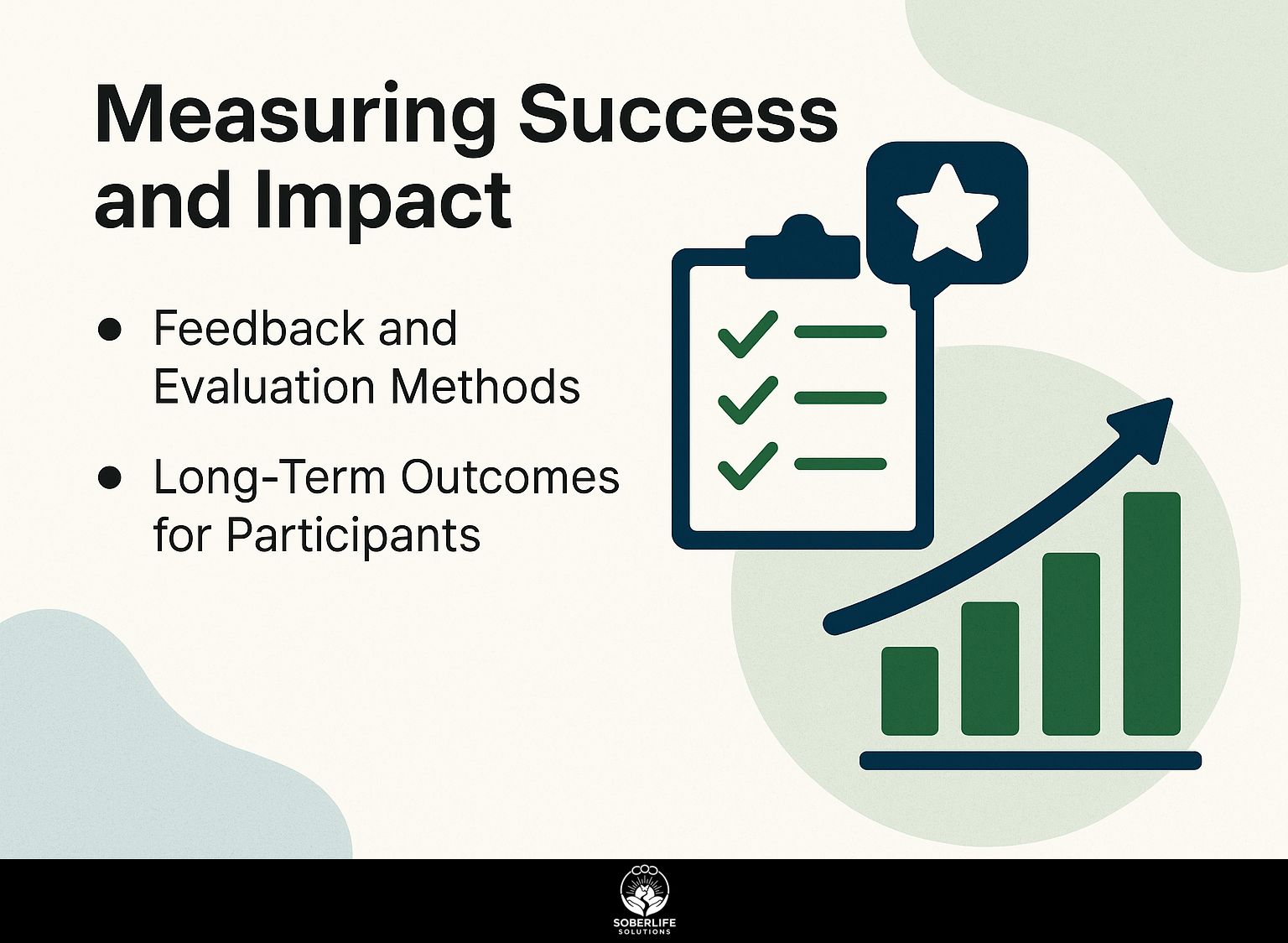
Assessing how well peer support groups work requires regular feedback and methods to evaluate their effects over time on those involved. (our complete guide on joining and running peer support groups provides detailed strategies).
Feedback and Evaluation Methods
Using anonymous surveys can give important information about participant experiences and how well the group is working.
To collect useful information, use tools like Google Forms for simple survey creation, or SurveyMonkey for more detailed analysis. Ask specific questions to gauge responses, such as:
- What did you like most about the group activity?
- How would you rate the facilitation skills of group leaders?
After collecting responses, analyze key trends and areas for improvement. Check for recurring comments in the feedback to make informed adjustments to upcoming activities, so that group interactions keep getting better.
Long-Term Outcomes for Participants
Research shows that participants in peer support groups report improved emotional wellness and stronger peer connections over time.
These groups offer a safe space for people to talk about their experiences and difficulties, helping them feel like they are part of a community.
For instance, a study by the Journal of Mental Health found that 76% of participants reported reduced anxiety after three months in a support group.
There are many success stories; take Jane, for example. After a year of involvement, she formed strong friendships and changed how she copes with stress, which greatly reduced her stress levels.
Engaging regularly in such groups can lead to lasting positive shifts in mental health and social networks.
Frequently Asked Questions
What are Peer Support Groups for Young Adults?
Peer Support Groups for Young Adults are groups of individuals who come together to provide each other with emotional, social, and practical support. These groups are made to support young adults dealing with similar issues.
How can Peer Support Groups benefit young adults?
Peer Support Groups for Young Adults offer a safe and non-judgmental space for individuals to share their experiences, struggles, and successes. It can provide a sense of belonging, reduce feelings of isolation, and offer practical advice and resources to help overcome challenges.
Who can join a Peer Support Group for Young Adults?
Any young adult who is facing challenges in their life can join a Peer Support Group. These challenges can include mental health issues, relationship problems, career struggles, or any other difficulties that may be affecting their well-being.
How do Peer Support Groups meet the needs of young adults?
Peer Support Groups for Young Adults are designed to address the unique challenges that young adults face. The groups may discuss subjects like handling college or work life, coping with mental health, creating positive relationships, and other important matters.
Are Peer Support Groups for Young Adults confidential?
Yes, confidentiality is a key aspect of Peer Support Groups. Members are expected to respect each other’s privacy and not share any personal information discussed within the group. This makes it safe and trusting for all involved.
Can I join a Peer Support Group for Young Adults if I am already receiving professional therapy or counseling?
Yes, Peer Support Groups can be a helpful part of any therapy or counseling you may be getting. Being in a group allows people to share experiences and get help from others dealing with the same issues. Before joining a support group, always talk with your therapist or counselor.

